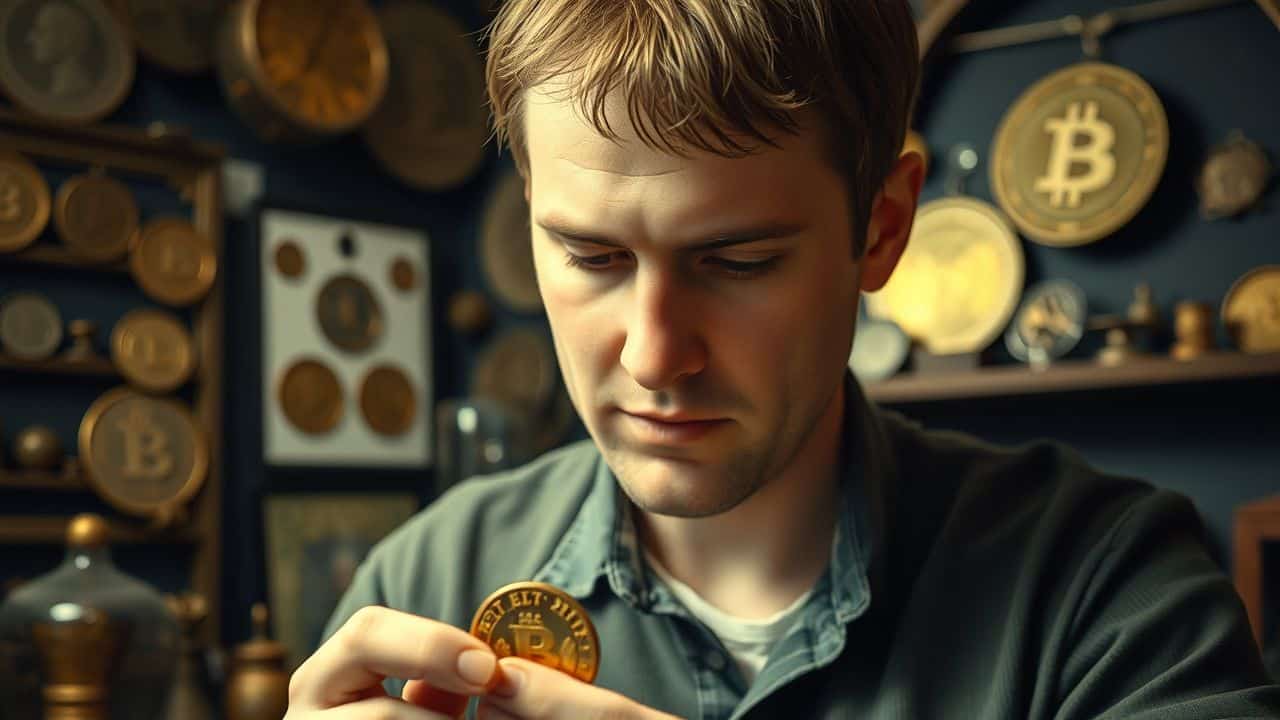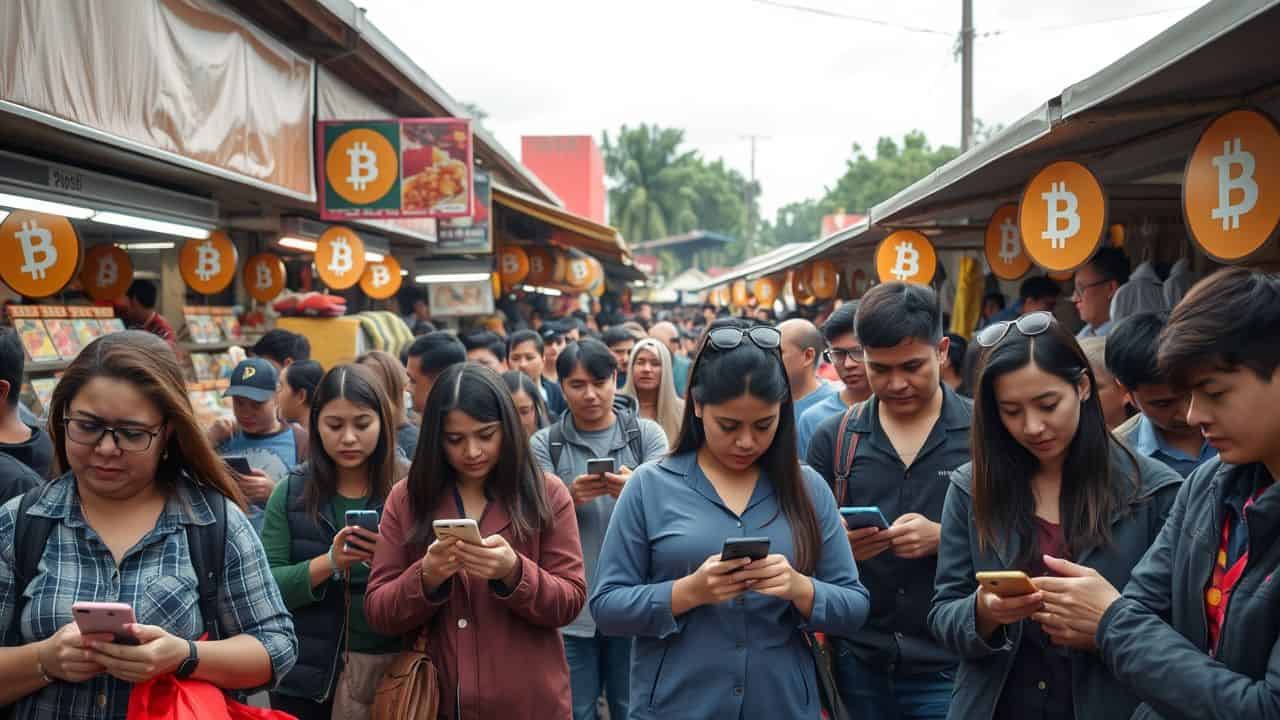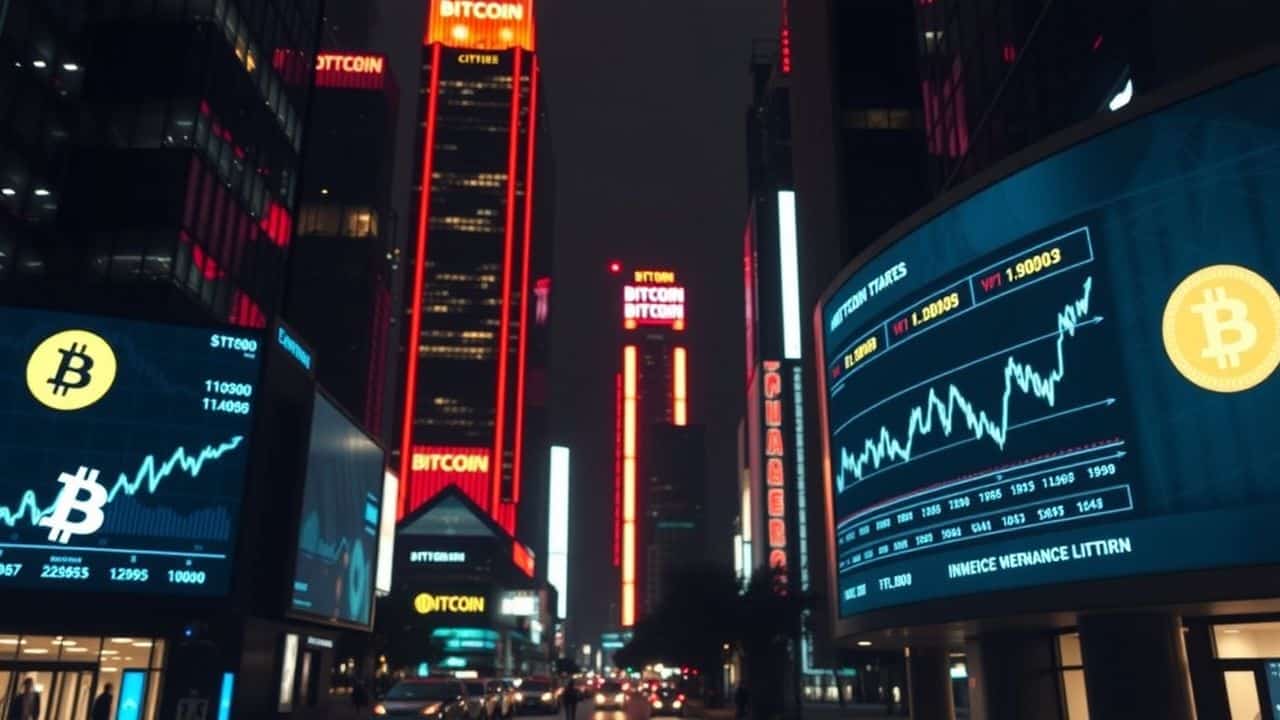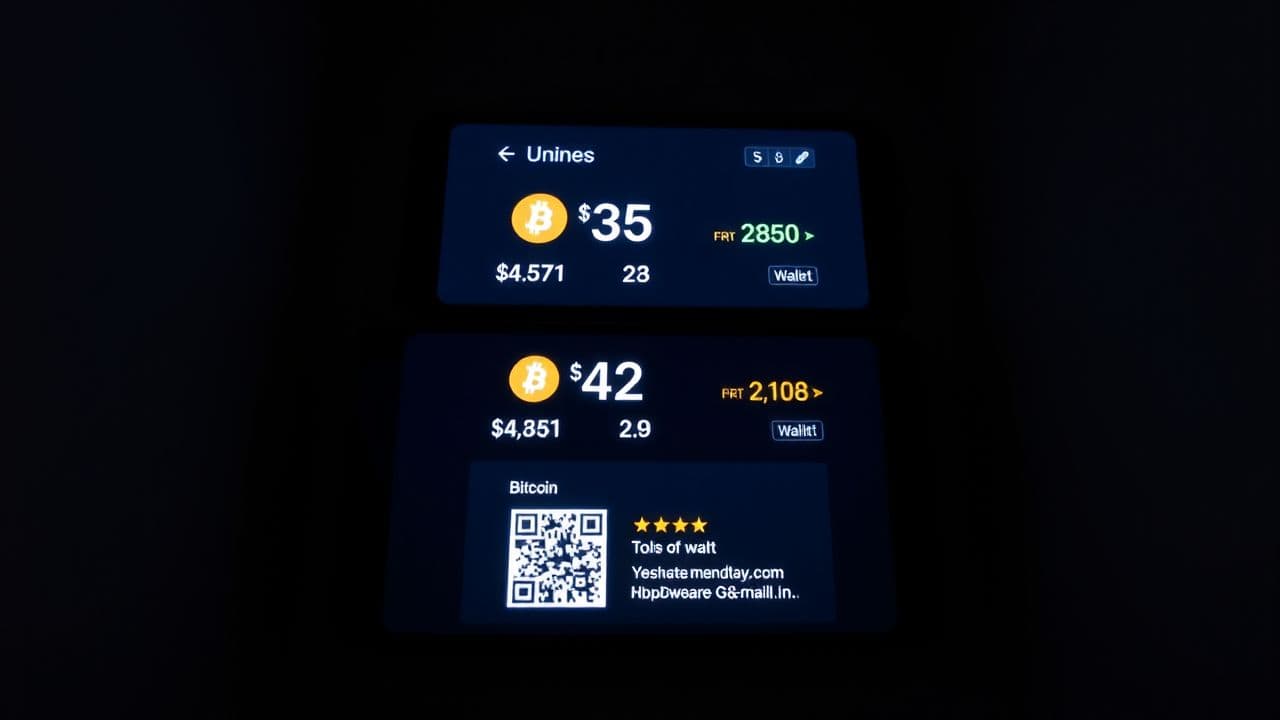Ever heard of a world where Bitcoin rules? That’s hyperbitcoinization. It’s a wild idea where Bitcoin might replace regular money. Crazy, right? But some folks think it could happen.
This post will break it down for you – no fancy talk, just the facts. Ready to dive into the Bitcoin rabbit hole?
Key Takeaways
Hyperbitcoinization is the idea that Bitcoin could replace traditional money globally. This concept was introduced by Daniel Krawisz in 2014.
Bitcoin offers a solution to hyperinflation, as seen in countries like Zimbabwe, where inflation hit 79.6 billion percent in November 2008.
El Salvador made Bitcoin legal tender in 2021, showing real-world adoption of cryptocurrency as a national currency.
The Lightning Network improves Bitcoin’s scalability by making transactions faster and cheaper.
Bitcoin faces challenges including price volatility, regulatory hurdles, and concerns about its environmental impact due to energy-intensive mining.
Table of Contents
What is Hyperbitcoinization?

Moving from the basics, let’s dive into a wild idea that’s got crypto fans buzzing. Hyperbitcoinization isn’t just a fancy word – it’s a big dream. Think of it as Bitcoin taking over the world… of money, that is.
Daniel Krawisz cooked up this concept back in 2014. He saw it as a shift from old-school cash to Bitcoin. It’s not just about more people using Bitcoin. It’s about Bitcoin becoming THE currency everyone uses.
Imagine a world where your paycheck, groceries, and even taxes are all in Bitcoin. That’s hyperbitcoinization in a nutshell. Right now, about 106 million folks use Bitcoin globally.
But for this dream to come true, we’d need way more. Want to join the party? The best way to buy Bitcoin is just a click away.
Hyperbitcoinization is like a financial revolution… but with more zeros and ones.
Evolution of Monetary Systems

Money has come a long way, folks! It all started with folks swapping goods directly. You give me a chicken, I’ll give you some corn. Simple, right? But as societies grew, this got tricky.
Enter precious metals. Gold and silver became the go-to for trade. They were rare, easy to carry, and didn’t spoil. Win-win! This system stuck around for centuries, with coins and later paper money backed by these shiny metals.
But here’s where things get wild. In 1971, the U.S. dropped a bombshell. They cut ties between the dollar and gold. Suddenly, money’s value wasn’t tied to anything physical. It was based on trust in governments.
This shift to fiat currency changed the game. Central banks could now print money at will. Some say this led to more economic flexibility. Others worry about inflation and loss of value.
Either way, it’s the system we use today. But with Bitcoin on the scene, are we on the brink of another monetary revolution?
Driving Forces Behind Hyperbitcoinization

Hyperbitcoinization isn’t just a fancy word – it’s a real force shaping our money’s future. From tackling sky-high inflation to making Bitcoin easier to use, there’s a lot going on behind the scenes.
Curious about what’s driving this crypto revolution? Keep reading to find out!
Addressing Hyperinflation and Economic Challenges

Bitcoin shines as a beacon of hope in countries grappling with hyperinflation. Take Zimbabwe, where monthly inflation hit a mind-boggling 79.6 billion percent in November 2008. Or look at Venezuela, where people use stacks of cash as napkins.
In these economic nightmares, Bitcoin offers a lifeline. It’s not tied to any government or central bank, so it can’t be printed willy-nilly like those worthless banknotes.
But it’s not just about dodging inflation. Bitcoin’s fixed supply of 21 million coins makes it a rare bird in the financial world. This scarcity attracts folks looking for a safe haven from economic storms.
Bitcoin is the answer to hyperinflation. – Nayib Bukele, President of El Salvador
Plus, with El Salvador making Bitcoin legal tender in 2021, we’re seeing real-world adoption kick into high gear. It’s like watching the future of money unfold before our eyes!
Trends in Mass Adoption and Integration
 Bitcoin’s popularity is skyrocketing. More people are using it every day. Big companies now accept it as payment. This trend is pushing Bitcoin into the mainstream. It’s not just for tech geeks anymore!
Bitcoin’s popularity is skyrocketing. More people are using it every day. Big companies now accept it as payment. This trend is pushing Bitcoin into the mainstream. It’s not just for tech geeks anymore!
Financial firms are jumping on board too. They’re creating new products based on Bitcoin. Investment funds, payment systems, and even some banks are getting involved. This integration is making it easier for everyone to use and invest in Bitcoin.
As more people join in, the trend keeps growing stronger.
Innovations in Scalability and Sustainability

Bitcoin’s growth has sparked cool tech upgrades. The Lightning Network, a Layer 2 solution, is shaking things up. It makes transactions faster and cheaper compared to altcoins.
This network lets users send tiny bits of BTC in a flash. It’s like adding express lanes to a crowded highway. Geeks are pumped about this scalability boost.
Green mining is another hot topic. Bitcoin’s energy use has raised eyebrows. But smart folks are cooking up eco-friendly solutions. They’re tapping into renewable energy sources. Some miners are even using excess natural gas that would’ve been wasted.
These innovations aim to make Bitcoin mining sustainable. It’s a win-win for crypto fans and tree-huggers alike.
Advances in Regulatory Frameworks and Institutional Support
 Regulatory frameworks for Bitcoin have come a long way. Gone are the wild west days of crypto. Now, we see clear rules popping up. Know Your Customer (KYC) and Anti-Money Laundering (AML) checks are becoming standard.
Regulatory frameworks for Bitcoin have come a long way. Gone are the wild west days of crypto. Now, we see clear rules popping up. Know Your Customer (KYC) and Anti-Money Laundering (AML) checks are becoming standard.
These rules help make Bitcoin more legit in the eyes of big players. And speaking of big players, they’re jumping on board too. Major companies and investment firms are buying Bitcoin.
It’s not just for tech geeks anymore.
Bitcoin is not a currency for criminals, it’s a currency for human rights. – Alex Gladstein
This team-up between rule-makers and crypto folks is key. They’re working to solve big issues like scaling and legal stuff. But it’s not all smooth sailing. Bitcoin’s decentralized nature makes it tricky to police bad actors.
Still, progress is happening. The future of Bitcoin regulation looks brighter than ever.
Advantages of Hyperbitcoinization

Hyperbitcoinization could shake up our money world big time. It might make Bitcoin the top dog in finance, giving power back to the people and cutting out middlemen.
Bitcoin as a Reliable Investment and Unit of Account

Bitcoin shines as a solid investment and unit of account. Its fixed supply of 21 million coins makes it rare and valuable. Unlike fiat money, no one can print more Bitcoin. This scarcity drives up its worth over time.
Plus, as more folks use Bitcoin, its network grows stronger. It’s like a snowball effect – the bigger it gets, the more useful it becomes.
I’ve seen firsthand how Bitcoin works as a unit of account. At a tech conference, prices for gadgets were in both dollars and Bitcoin. It was easy to compare values. Some even had wallet address QR codes for quick payments.
This shows how Bitcoin is becoming a go-to measure of value in tech circles. It’s not just magic internet money anymore – it’s a real tool for pricing and trade.
Fostering Decentralization and Minimizing Monetary Privilege

Bitcoin shakes up the money game. It takes power from big banks and gives it to regular folks. No more middlemen calling the shots. You control your cash, plain and simple. This shift levels the playing field.
Rich or poor, everyone gets the same deal with Bitcoin.
Money privilege? Not with Bitcoin. It doesn’t play favorites. Big shots can’t print more when they want. The system’s rules are set in stone. This means fairer money for all. No more rigging the game.
Bitcoin brings financial freedom to the masses. It’s a game-changer for those left out by traditional banks.
Barriers and Concerns with Hyperbitcoinization

Hyperbitcoinization faces some tough hurdles. Scalability issues and political pushback could slow Bitcoin’s rise as a global currency.
Issues with Scalability
Bitcoin’s growth faces a big hurdle: scalability. Right now, it can’t handle tons of transactions quickly. This slows things down and makes costs go up. It’s like trying to fit an elephant through a keyhole – not gonna happen! The Bitcoin network struggles to keep up as more people use it.
To fix this, smart folks are working on cool tricks. The Lightning Network is one of these. It’s like a secret passage for Bitcoin, letting transactions zip through faster and cheaper.
But there’s still work to do. If Bitcoin can’t solve this puzzle, it might not become the world money some dream of. Next up, we’ll look at other roadblocks in Bitcoin’s path.
Political and Economic Obstacles
Scaling issues aren’t the only hurdle for Bitcoin. Political and economic roadblocks loom large too. Governments cling to their power over money like a kid with a favorite toy. They’re not keen on giving up control of monetary policy to a digital currency they can’t manipulate.
Bitcoin’s rise threatens the status quo. It could shake up traditional banks and financial systems. Job losses in these sectors might follow. Plus, some worry about financial instability during a transition.
Environmental concerns about Bitcoin mining’s energy use also bug policymakers. They fret over how it fits with efforts to fight climate change. These obstacles make Bitcoin’s path to replacing regular money a rocky one.
Concerns Over Volatility and Acceptance
Bitcoin’s wild price swings make it a tough sell as real money. It’s like a roller coaster – fun for thrill-seekers, not so great for buying groceries. The numbers don’t lie: Bitcoin’s ups and downs are way crazier than regular cash.
This makes stores and businesses hesitant to jump on board. After all, who wants to accept payment that might be worth half as much tomorrow?
But here’s the kicker – Bitcoin’s volatility isn’t just a problem for shoppers. It’s a headache for investors, too. The crypto crowd often touts Bitcoin as “digital gold,” but its price jumps around way more than the shiny stuff.
This makes it hard to use as a stable store of value. Sure, you might strike it rich… or lose your shirt. It’s this unpredictability that keeps Bitcoin in the “risky investment” box instead of the “everyday currency” one.
Projected Outcomes of Hyperbitcoinization

Hyperbitcoinization could shake up our money world big time. Want to know how? Keep reading!
Bitcoin as the Predominant Global Currency
Bitcoin could become the world’s top money by 2035. That’s a big deal! It would mean no more dollars, euros, or yen. Just Bitcoin. Some folks think this might happen because Bitcoin has a limit of 21 million coins.
This makes it rare and valuable. Plus, with high inflation in many countries, people are looking for better ways to save their cash. Bitcoin seems like a good choice to many.
I’ve seen firsthand how Bitcoin is changing things. My friend in Venezuela uses it to buy food because their money is worth almost nothing now. It’s wild to think this could happen everywhere.
But there are still big hurdles. Not everyone trusts Bitcoin yet. And governments might fight against it. Still, if Bitcoin keeps growing, it could shake up the whole money system.
That’s pretty exciting for us geeks!
Simultaneous Existence with Traditional Currencies
While Bitcoin might become a major player, it’s not likely to replace traditional money completely. Bitcoin and regular cash could coexist, each with its own role – like having a Swiss Army knife and a regular knife in your kitchen drawer, both useful for different tasks.
This combination could actually improve how money works for everyone. Bitcoin could complement areas where regular cash has limitations, such as sending money across borders quickly and cheaply.
Meanwhile, dollars and euros would still be there for everyday transactions. It’s about creating a financial partnership that covers all bases, not one replacing the other. This arrangement could offer people more options and improve the efficiency of the financial system for everyone.
Challenges from Regulatory Actions and Market Dynamics
Regulatory actions pose big hurdles for Bitcoin’s takeover. Governments don’t like losing control of money. They might ban or limit Bitcoin use. This could slow down its spread. Market swings also cause problems.
Bitcoin’s price changes a lot. This makes it hard for businesses to plan. People might not want to use it if the value keeps jumping around.
These issues make Bitcoin’s future unclear. Tech upgrades could fix some problems. But government rules and economic trends will play a big role. The path to Bitcoin replacing regular money isn’t straight.
It faces many twists and turns. Only time will tell if it can overcome these challenges.
People Also Ask
What is hyperbitcoinization?
Hyperbitcoinization is when Bitcoin takes over as the main money. It’s like when paper money replaced gold. Some folks think it’ll happen fast, like a light switch. Others say it’s a pipe dream.
Can Bitcoin really beat out regular cash?
It’s a hot debate. Bitcoin fans say it’s better than the dollar or pound. They claim it fights inflation and helps the poor. But critics worry about its wild price swings. The jury’s still out on this one.
How might Bitcoin change our economy?
If Bitcoin wins big, it could shake things up. Banks might lose power. The Fed couldn’t print money willy-nilly. It could make trade easier worldwide. But it’s not all roses. There’d be bumps along the way.
What about other digital coins?
Bitcoin’s the big cheese, but there are loads of other cryptos. Some say they’re better than Bitcoin. But Bitcoin has a head start. It’s like the 800-pound gorilla of the crypto world.
Is Bitcoin good for the planet?
It’s a mixed bag. Bitcoin uses tons of energy. That’s not great for Mother Earth. But some argue it could push us to cleaner power. It’s a tough nut to crack.
Should I put my life savings in Bitcoin?
Whoa there, cowboy! Bitcoin’s a rollercoaster ride. It could make you rich or leave you broke. Don’t bet the farm on it. Talk to a money pro before making any big moves. Remember, if it sounds too good to be true, it probably is.
References
https://bitcoinmagazine.com/hyperbitcoinization
https://d-central.tech/understanding-hyperbitcoinization-bitcoins-path-to-global-dominance/
https://troymedia.com/joint-venture/what-is-hyperbitcoinization/ (2024-06-18)
https://simpleswap.io/blog/hyperbitcoinization-explained
